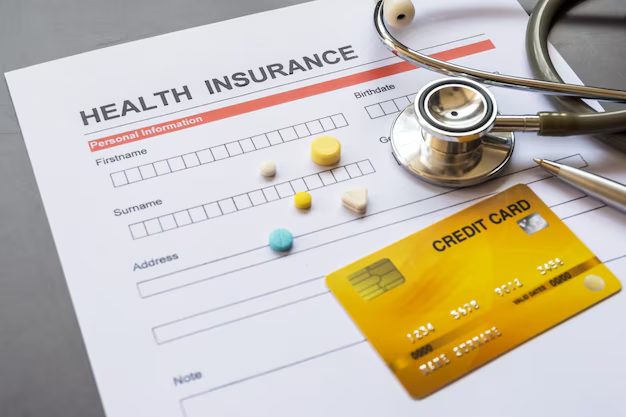Your Guide to What Is The Donut Hole In Medicare
What You Get:
Free Guide
Free, helpful information about Medicare Insurance and related What Is The Donut Hole In Medicare topics.
Helpful Information
Get clear and easy-to-understand details about What Is The Donut Hole In Medicare topics and resources.
Personalized Offers
Answer a few optional questions to receive offers or information related to Medicare Insurance. The survey is optional and not required to access your free guide.
Understanding Medicare's Donut Hole: What You Need to Know
Navigating the complexities of Medicare can feel like learning a new language, especially when it comes to the infamous donut hole—an unexpected twist in your prescription drug coverage. So, what exactly is this "hole," and how does it affect you?
The Concept of the Donut Hole
In the world of Medicare Part D, the donut hole refers to a coverage gap that requires beneficiaries to pay a larger share of their prescription drug costs after a certain limit is reached. Initially, Part D plans help cover medications up to a specific threshold. But once you and your plan spend beyond this initial coverage limit, you enter the donut hole.
During this period, out-of-pocket costs for medications can increase significantly, posing a financial burden for those with high prescription needs. Despite reforms under the Affordable Care Act, which aimed to close this donut hole, it's crucial to note that while it's closing, the gap still exists to some extent. Beneficiaries are liable for 25% of the cost for brand-name prescriptions and generic drugs during the coverage gap.
Bridging the Financial Gap
Experiencing the donut hole can be daunting, but there are strategies and assistance programs to alleviate the financial load. Here's how you can navigate the coverage gap more effectively:
Seek Out Alternative Medications: Discuss with your healthcare provider if there are generic or less expensive alternatives to your current prescriptions. This step alone can dramatically reduce costs.
Pharmaceutical Assistance Programs: Many pharmaceutical companies offer assistance programs to help cover medication costs. It's worth researching if the manufacturers of your medications have such offerings.
State Pharmaceutical Assistance Programs (SPAPs): Some states have special programs to assist low-income residents with drug costs. Check to see if you're eligible for any of these programs in your state.
Medicare's Extra Help Program: This federal assistance program helps cover prescription drug costs for those with limited income and financial resources. Qualifying for Extra Help automatically involves less financial burden from the donut hole.
Understanding and preparing for the donut hole in your Medicare Part D coverage can prevent unexpected financial strain. By evaluating your options, discussing with care providers, and leveraging aid programs, this coverage gap can become just another aspect of managing your healthcare.
Financial Aid Beyond Medicare
Beyond Medicare's scope, a range of government and nonprofit programs offer financial assistance that can complement your overall financial health. Explore these avenues to bolster your financial security:
Government Benefits: Visit the government’s benefits portal to explore numerous programs available based on criteria like income, age, disability, and veteran status.
Debt Relief Options: Consider speaking with a certified debt counselor to explore strategies like debt consolidation or settlement. This can streamline debt management and lower monthly payments.
Credit Card Solutions: Many credit card companies offer hardship programs that temporarily lower interest rates or defer payments due to financial distress.
Educational Grants: For those seeking education or training opportunities, federal and state grants such as Pell Grants can significantly lessen the financial burden of tuition and educational materials.
By exploring and utilizing these resources, you can create a more resilient financial strategy that not only tackles immediate costs but also supports long-term stability.
Financial Assistance Programs & Resources 💰
- Extra Help (Medicare): Reduces Part D costs for eligible low-income individuals.
- State Pharmaceutical Assistance Programs (SPAPs): Assistance varies by state for prescription drug costs.
- Pharmaceutical Company Assistance Programs: Manufacturer-backed assistance for expensive drugs.
- Government Benefits Portal: Comprehensive list of government aid programs.
- Debt Relief Solutions: Options include consolidation, management plans, and settlement.
- Credit Card Hardship Programs: Temporary relief via reduced payments and interest.
- Educational Grants: Federal and state options for financial assistance in education.
What You Get:
Free Medicare Insurance Guide
Free, helpful information about What Is The Donut Hole In Medicare and related resources.

Helpful Information
Get clear, easy-to-understand details about What Is The Donut Hole In Medicare topics.

Optional Personalized Offers
Answer a few optional questions to see offers or information related to Medicare Insurance. Participation is not required to get your free guide.


Discover More
- Am I Elgible For Medicare
- Am I Enrolled In Medicare
- Am I Qualified For Medicare
- Are Adult Diapers Covered By Medicare
- Are Chemotherapy Drugs Covered By Medicare Part d
- Are Colonoscopies Covered By Medicare
- Are Covid Tests Covered By Medicare
- Are Cpap Machines Covered By Medicare
- Are Cpap Supplies Covered By Medicare
- Are Dental Implants Covered By Medicare
